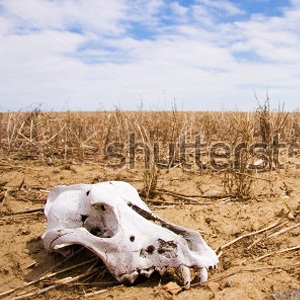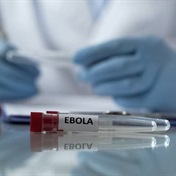
The world's worst Ebola epidemic has put harvests at risk and sent food prices soaring in West Africa, the U.N. Food and Agriculture Organisation (FAO) said on Tuesday 2 September 2014, warning the problem would intensify in coming months.
The FAO issued a special alert for Liberia, Sierra Leone and Guinea, the three countries most affected by the outbreak, which has killed around 1 550 people since the virus was detected in the remote jungles of southeastern Guinea in March.
Restrictions on people's movements and the establishment of quarantine zones to contain the spread of the heamorrhagic fever has led to panic buying, food shortages and price hikes in countries ill-prepared to absorb the shock.
Read: Interesting facts about quarantine
MONROVIA, LIBERIA - AUGUST 21: Residents of the West Point slum receive food aid during the second day of the government's Ebola quarantine on their neighborhood on August 21, 2014 in Monrovia, Liberia. The government delivered bags of rice, beans and cooking oil to residents, who are forbidden from leaving the seaside slum, due to the Ebola outbreak in their community. (Photo by John Moore/Getty Images)
"Even prior to the Ebola outbreak, households in some of the most affected areas were spending up to 80 percent of their incomes on food," said Vincent Martin, head of an FAO unit in Dakar which is coordinating the agency's response.
"Now these latest price spikes are effectively putting food completely out of their reach," Martin said in a statement, adding the food crisis could hinder containment of the disease, which is typically spread via the bodily fluids of the sick.
Rice and maize production will be scaled back during the fast-approaching main harvest season as migration and movement restrictions cause labour shortages on farms, FAO said.
KENEMA, SIERRA LEONE - AUGUST 23: Suspected Ebola patients are seen at Kenema governmental hospital, suspected patients go to Red Cross tent if they have any symptoms of Ebola like vomiting, diahria, high fever, suspected patients are put in quarantine, in Kenema, Sierra Leone on 23 August, 2014. (Photo by Mohammed Elshamy/Anadolu Agency/Getty Images)
Cash crops like palm oil, cocoa and rubber will be seriously affected, squeezing the purchasing power of many families, who will also lose income and nutrition due to the ban on bush meat.
Read: Guinea issues bush meat warning
Border crossing closures and the reduction of trade through seaports have tightened food supplies in the three countries, which are all net cereal importers, and propelled prices upwards, exacerbated by higher transport costs.
The U.N. World Food Programme and FAO have approved an emergency programme to deliver 65 000 tonnes of food to 1.3 million people affected by Ebola over a three-month period.
The price of cassava at a market in the Liberian capital Monrovia rose 150 percent in the first weeks of August, the FAO said, adding that currency depreciation in Sierra Leone and Liberia was likely to force prices up further.
Read more:
Ebola health workers face 'hellish' conditions
The WHO says the Ebola outbreak will not be contained in 2014
Africans are forsaking traditional crops in favour of global foods
Image: famine in Africa, Shutterstock




 Publications
Publications
 Partners
Partners















